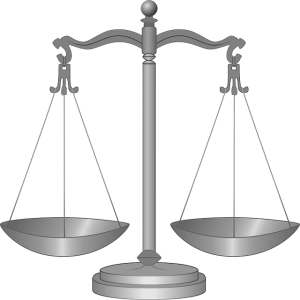In the UK, precise and authentic court document translations are essential for legal proceedings, particularly when language barriers are present. Specialist Court Documents UK translation services ensure that all legal documents, including contracts, witness statements, affidavits, judgments, and subpoenas, are accurately translated by linguists with expertise in both legal language and the relevant languages. These translators undergo a rigorous review process, often involving a second qualified translator to confirm their work's exactness. To maintain the highest standards, these translation services may hold Specialised Translator's qualifications from the University of Wales and are well-versed in legal instruments like the European Arrest Warrant (EAW) or the Hague Convention on the Service Abroad of Judicial and Extra-Judicial Documents in Civil or Commercial Matters. By providing legally sound translations, Court Documents UK specialize in ensuring that every detail is accurately rendered, upholding justice and maintaining the integrity of legal proceedings within the UK.
navigating the UK’s legal system can be a complex task, especially when court documents require translation. This article delves into the critical role of certified court document translations within the UK’s judicial framework. We explore the necessary legal stipulations, the distinctions between certified and non-certified translations, and the pivotal part professional translation services play in ensuring accurate and culturally sensitive interpretations. With a focus on the intricacies involved in the process of obtaining certified translations for UK court documents, we also address common types of documents that frequently necessitate such translations. Furthermore, we provide guidance on verifying the credentials of translation service providers to ensure compliance with legal standards. This comprehensive guide aims to shed light on the importance and nuances of court document translation services in the UK, ensuring clarity and precision for all parties involved.
- Understanding the Necessity of Certified Court Document Translations in the UK
- The Legal Framework Governing Court Document Translation in the UK
- Key Differences Between Certified and Non-Certified Translations in the UK Legal System
- The Role of Professional Translation Services in Court Document Translation
- Step-by-Step Process for Obtaining Certified Translations for UK Court Documents
- Common Types of Court Documents Requiring Translation in the UK
- Challenges and Considerations in Translating Legal Documents for UK Courts
- How to Verify the Credentials of Translation Service Providers in the UK
- The Importance of Accuracy and Cultural Sensitivity in Court Document Translations
Understanding the Necessity of Certified Court Document Translations in the UK

In the intricate legal landscape of the United Kingdom, the accuracy and authenticity of court document translations are paramount. When legal proceedings traverse language barriers, certified translations become an indispensable tool for ensuring clarity and fairness. Court documents, which often include sensitive information such as contracts, witness statements, and legal correspondence, require precise translation to maintain their legal integrity. UK translation services that specialize in certified translations offer the necessary expertise to accurately convey complex legal terminology and nuances across languages. This is crucial for parties involved in litigation who may not have a command of English or any other language the document is required in. The certification provided by these translation services verifies the translated content’s exactness, which is essential for UK courts to accept and rely upon. In the context of international legal disputes, where documents must be presented in the correct linguistic form, certified court document translations are not just a service—they are a cornerstone of legal process integrity within the UK judicial system.
The Legal Framework Governing Court Document Translation in the UK

When legal proceedings traverse international boundaries, the accuracy and integrity of court document translations become paramount in the UK. The Legal Framework Governing Court Document Translation is rooted in both domestic legislation and international agreements that ensure all translated documents meet stringent standards of precision and reliability. In the UK, the Supreme Court’s ruling underscores the necessity for certified translations when court documents are involved, as per the Civil Procedure Rules (CPR) which mandate that all foreign documents presented in UK courts must be accompanied by official translations. These translations must be executed by a professional translator who is either a member of an authorised body, such as the Institute of Translation and Interpreting (ITI), or the Chartered Institute of Linguists (CIOL), or accredited by the relevant UK consulate or embassy. The Official Documents (Scotland) Regulations 2014 further stipulate that translators must provide a statement of accuracy, confirming that the translation is complete and accurate to the best of their knowledge. Additionally, the EU’s Directive 2006/86/EC on the right to interpretation and translation in criminal proceedings ensures that all EU nationals have access to qualified legal translations in UK courts, thereby upholding justice and fairness across linguistic barriers. Court document translation services in the UK are thus tasked with navigating this complex framework to deliver translations that stand up to legal scrutiny and facilitate the smooth progression of international judicial matters.
Key Differences Between Certified and Non-Certified Translations in the UK Legal System

In the UK legal system, the accuracy and authenticity of translations are paramount, especially when it comes to court documents. Certified translations differ from non-certified ones primarily in their level of verification and legal standing. A certified translation is executed by a professional translator who is accredited by a relevant authority, such as the Institute of Translators and Interpreters (ITI) or the Chartered Institute of Linguists (CIOL). This process involves not only an accurate translation of the original document but also a declaration of accuracy by the translator, attached to the translated text. The declaration must state that the translation is complete and faithful to the source document, and that it is a true and impartial translation to the best of their knowledge and belief. This certification makes certified translations legally admissible in UK courts, which is crucial for legal proceedings where documents must be presented in English or another language with equivalent legal status.
On the other hand, non-certified translations are often used for personal or business purposes where formal certification is not required by law. While they may also be accurate, they lack the official declaration and certification that attests to their validity within a legal context. This distinction is significant, as court documents in UK legal cases require the highest level of precision and legal recognition. Court Documents UK translation services specialize in providing certified translations that meet these stringent requirements, ensuring that all translated content adheres to the necessary legal standards for use in UK courts. Utilizing professional court document translation services is essential for maintaining the integrity and validity of legal documents within the UK’s complex legal system.
The Role of Professional Translation Services in Court Document Translation

In the legal realm within the UK, the accuracy and authenticity of court documents are paramount. When these documents require translation into or from another language, the stakes are even higher. Professional translation services play a critical role in ensuring that court documents are accurately translated, maintaining the integrity and legibility of the original content. These specialized services, adept at UK court document translations, employ expert linguists who are not only fluent in the relevant languages but also well-versed in legal terminology and the nuances of legal translation. This expertise is essential for conveying complex legal concepts accurately across language barriers. The translated documents must adhere to strict legal standards, as minor discrepancies can lead to misunderstandings or even undermine legal proceedings. Therefore, leveraging the services of professional translators who specialize in court document translations ensures that all parties involved have access to clear, precise, and legally sound translations, facilitating fair and just outcomes in legal matters across the UK.
Step-by-Step Process for Obtaining Certified Translations for UK Court Documents

When legal proceedings require the translation of documents in the UK, certified court document translations become a necessity to ensure accurate communication and compliance with the law. The process for obtaining these translations is both structured and critical to the legal integrity of the cases involved. To begin, the original court documents must be issued by an authorised person or body within the UK’s judicial system. This step is essential to establish the document’s authenticity and authority.
Next, the individual or entity requiring the translation must engage with professional UK translation services that specialise in legal translations. These services are staffed by translators who are not only proficient in both the source and target languages but also well-versed in legal terminology and the specific nuances of court documents. The translation professionals will work diligently to provide an exact and impartial translation, ensuring that every term, clause, and nuance is accurately conveyed in the target language. Upon completion, the translated document undergoes a rigorous quality check by a second qualified translator to ensure its precision and reliability.
Once the translation is verified for accuracy, the translator or translation service will then certify it. This certification involves affirming that the translation is complete and faithful to the original text. The translator attaches a statement confirming their qualifications and declaring that the translation is accurate to the best of their knowledge and ability. This certificate serves as a testament to the translation’s authenticity and can be presented alongside the original document in UK courts or for other legal purposes.
Finally, the certified translated court document must be submitted to the issuing authority, such as a court or public body, for an additional layer of verification. This may involve additional stamps, seals, or signatures that validate the translation’s certification. Once this final step is completed, the translated document is ready for use in legal proceedings within the UK, ensuring that all parties involved can proceed with mutual understanding and compliance with legal standards.
Common Types of Court Documents Requiring Translation in the UK

In the legal arena of the United Kingdom, the accuracy and authenticity of translations for court documents are paramount. Court document translation services in the UK play a crucial role in facilitating justice and ensuring fairness for all parties involved in legal proceedings where language barriers exist. Common types of court documents that often require professional translation include contracts, witness statements, affidavits, judgments, and subpoenas. These documents must be translated into the official language of the court or the language understood by the party concerned to maintain the integrity of the legal process. Certified translations are especially important as they come with a statement of accuracy from the translation service provider, attesting to the document’s true representation in the target language. This certification is often required for the documents to be admissible in UK courts, where precision and adherence to legal standards are non-negotiable. Translation services that specialize in court documents in the UK are well-versed in the nuances of legal terminology and the specific requirements set forth by the judicial system, ensuring that all translated content is both accurate and legally sound. This meticulous approach to translation upholds the tenets of justice and respects the rights of individuals who interact with the legal system without proficiency in English.
Challenges and Considerations in Translating Legal Documents for UK Courts

In the context of UK courts, the translation of court documents presents a complex array of challenges and considerations that demand professional expertise. The linguistic precision required in legal translations is paramount; errors can lead to misinterpretation and potentially unfair outcomes. Court document UK translation services must navigate the nuanced language inherent in legal texts, ensuring accuracy and completeness in every facet. This involves not only a deep understanding of both the source and target languages but also an intricate knowledge of the legal terminology and concepts specific to UK law. Translators must be adept at interpreting and conveying the exact meaning of documents, which may include contracts, statements, witness testimonies, and other legal instruments. The pressure for court document UK translation services is further compounded by the need to maintain the original document’s intent, tone, and formality, while adhering to the legal framework governing translations within the UK judicial system.
Furthermore, the translation of court documents must comply with strict legal standards and ethical guidelines. The translator’s role extends beyond mere word-for-word translation; it requires a comprehensive grasp of the legal context and implications of each document. Additionally, the chosen translation service provider must be familiar with the various formats required by courts, from PDFs to digital transcripts, ensuring seamless integration into the judicial process. The stakes are high, as the integrity of legal proceedings relies on the accuracy of translations. Therefore, court document UK translation services must consistently demonstrate reliability and expertise to uphold the principles of justice and fairness within the legal system.
How to Verify the Credentials of Translation Service Providers in the UK

When engaging with court document translation services in the UK, verifying the credentials of service providers is paramount to ensure the accuracy and validity of translated documents. Prospective clients should commence their verification process by confirming that translators are accredited by professional bodies such as the Institute of Translation and Interpreting (ITI) or the Chartered Institute of Linguists (CIOL). These organizations uphold rigorous standards, including stringent testing and adherence to a code of professional conduct. Additionally, one should check if translators hold a Specialised Translator’s qualification from the University of Wales, which is specifically designed for legal translations, including court documents. This credential underscores the translator’s expertise in handling legal language and the nuances inherent to such texts.
Furthermore, reputable translation services will provide a list of previous clients or case studies where their work has been accepted by UK courts. It is also advisable to request samples of past translations, especially those related to court documents UK, to assess the quality of their work. Clients should ensure that the service provider is aware of and complies with the relevant legal frameworks, such as the European Arrest Warrant (EAW) or the Hague Convention on the Service Abroad of Judicial and Extra-Judicial Documents in Civil or Commercial Matters. By doing due diligence to verify credentials and track records, individuals and organizations can safeguard the integrity of their translated court documents within the UK legal system.
The Importance of Accuracy and Cultural Sensitivity in Court Document Translations

In the legal arena, precision is paramount, and this is especially true when it comes to court document translations within the UK. The translated content must be a faithful representation of the original text, with every nuance and detail accurately conveyed. Court Documents UK translation services employ expert linguists who are not only proficient in both the source and target languages but are also well-versed in legal terminology. This ensures that the translations stand up to the rigorous scrutiny inherent in legal proceedings, where errors can lead to miscarriages of justice or undermine the legitimacy of legal decisions. Furthermore, cultural sensitivity is an integral aspect of these translation services. Translators must consider the cultural connotations of words and phrases, as well as the societal norms that underpin the language used in the documents. This understanding is crucial for maintaining the original meaning and intent, avoiding misinterpretations or unintended offenses that could arise from a literal translation without cultural context. By combining accuracy with cultural awareness, these translation services provide pivotal support to legal professionals, ensuring that court documents are accessible and meaningful to all parties involved, regardless of their language or cultural background. This facilitates fairness, transparency, and justice in the UK’s legal system.
In conclusion, navigating the legal system in the UK, particularly when court documents require translation, is a process that demands precision, expertise, and adherence to strict legal standards. The necessity of certified translations for court documents ensures that all parties involved have access to accurate and authentic interpretations, which is paramount for the fair administration of justice. Professional translation services play a pivotal role in this process, offering linguistic proficiency alongside an understanding of the UK’s legal framework. For individuals and organisations alike, selecting a reputable translation service provider with verifiable credentials is essential to meet the high demands of legal document accuracy and cultural sensitivity. By adhering to the outlined step-by-step process and leveraging the expertise of these services, one can confidently address the complexities inherent in court document translations within the UK’s judicial system. Court Documents UK translation services stand as a testament to the critical intersection of language and law, ensuring that every translated document upholds the integrity of the legal proceedings it supports.
